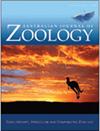火灾对澳大利亚北部食虫蝙蝠活动的影响:火灾强度对当地尺度有影响吗?
IF 1
4区 生物学
Q3 ZOOLOGY
引用次数: 6
摘要
摘要由于气候变化,火灾变得更加强烈、频繁和广泛。在澳大利亚北部,不适当的火灾制度与哺乳动物的减少有关,但对于火灾制度的不同方面如何影响该地区的蝙蝠,我们一无所知。这项研究旨在确定与季节性相关的火灾强度如何影响当地范围内的食虫蝙蝠。在约克角半岛的5个地点重复实验中,使用了一种实验性的M - BACI方法,在那里使用超声波探测器来确定食虫蝙蝠对局部低强度烧伤(LIBs)和高强度烧伤(HIBs)的反应。总蝙蝠活性由于LIBs而增加,但对HIBs没有反应。边缘开放的蝙蝠的活动也因LIBs而增加,但对HIBs的反应减少。开放行会蝙蝠的活动不受LIBs的影响,但对HIBs表现出强烈的积极反应。封闭行会蝙蝠的活动对火或火的强度没有反应。这些反应可能源于栖息地结构和猎物可得性的变化。鉴于每个蝙蝠协会对每种火灾强度的反应不同,这为“焦多样性产生生物多样性”的概念提供了支持,这是目前澳大利亚北部许多火灾管理实践的基础。本文章由计算机程序翻译,如有差异,请以英文原文为准。
Effect of fire on insectivorous bat activity in northern Australia: does fire intensity matter on a local scale?
Abstract. Fire is notably becoming more intense, frequent and widespread due to climate change. In northern Australia, inappropriate fire regimes have been implicated in mammal declines, yet nothing is known about how different aspects of fire regimes affect bats in this region. This study aimed to determine how fire intensity, associated with seasonality, affects insectivorous bats on a local scale. An experimental M BACI approach was used on five site replicates across Cape York Peninsula, where ultrasonic detectors were used to determine the activity of insectivorous bats in response to low intensity burns (LIBs) and high intensity burns (HIBs) on a local scale. Total bat activity increased due to LIBs, but showed no response to HIBs. Activity of edge-open guild bats also increased due to LIBs but decreased in response to HIBs. Activity of open guild bats was unaffected by LIBs, but exhibited a strong positive response to HIBs. Activity of closed guild bats showed no response to fire, or fire intensity. Responses were likely derived from changes in habitat structure and prey availability. Given that each bat guild responded differently to each fire intensity, this lends support to the ‘pyrodiversity begets biodiversity’ concept, which is currently the basis for many fire management practices for conservation in northern Australia.
求助全文
通过发布文献求助,成功后即可免费获取论文全文。
去求助
来源期刊
CiteScore
2.40
自引率
0.00%
发文量
12
审稿时长
>12 weeks
期刊介绍:
Australian Journal of Zoology is an international journal publishing contributions on evolutionary, molecular and comparative zoology. The journal focuses on Australasian fauna but also includes high-quality research from any region that has broader practical or theoretical relevance or that demonstrates a conceptual advance to any aspect of zoology. Subject areas include, but are not limited to: anatomy, physiology, molecular biology, genetics, reproductive biology, developmental biology, parasitology, morphology, behaviour, ecology, zoogeography, systematics and evolution.
Australian Journal of Zoology is a valuable resource for professional zoologists, research scientists, resource managers, environmental consultants, students and amateurs interested in any aspect of the scientific study of animals.
Australian Journal of Zoology is published with the endorsement of the Commonwealth Scientific and Industrial Research Organisation (CSIRO) and the Australian Academy of Science.

 求助内容:
求助内容: 应助结果提醒方式:
应助结果提醒方式:


